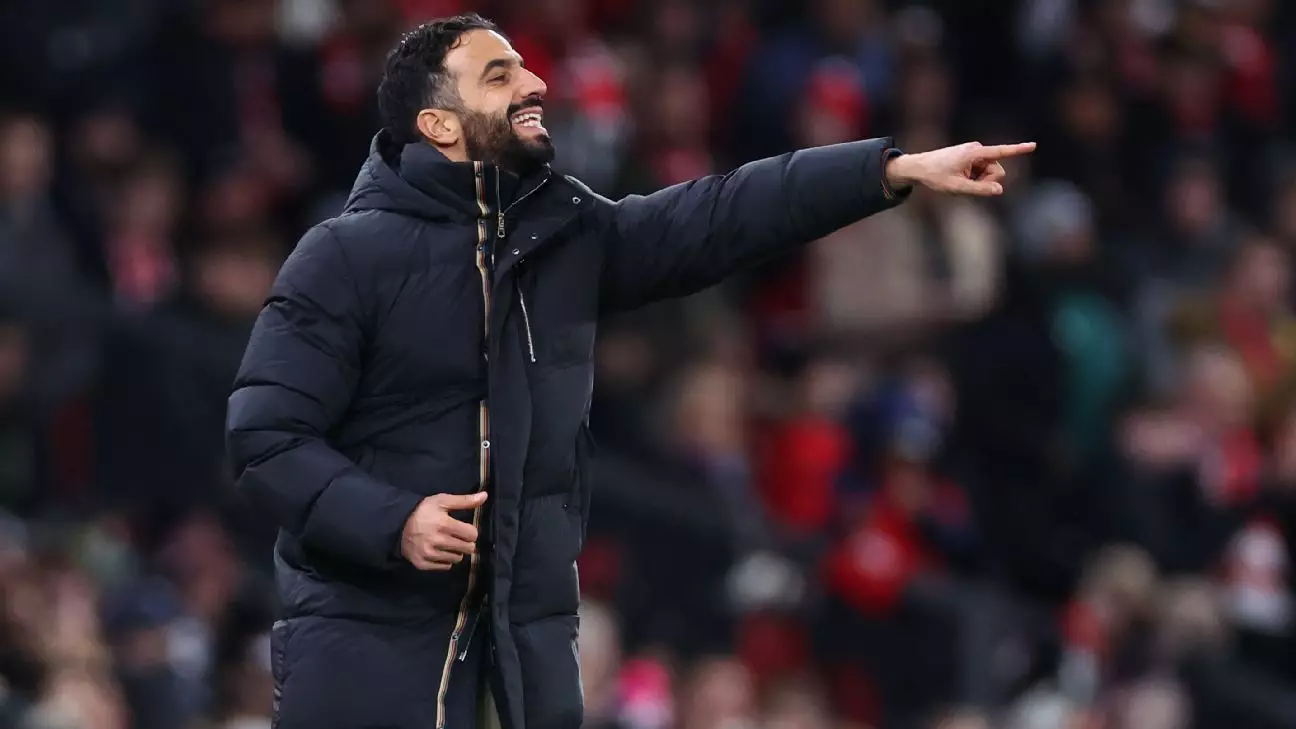Ruben Amorim’s tenure as the manager of Manchester United has certainly been marked by a rollercoaster of emotions, underscored by a blend of optimism and concern. Following his debut victory in the Europa League against Bodo/Glimt, Amorim has openly expressed the anxiety that accompanies his early days in charge. The Portuguese coach revealed that, while he is excited about the potential of his squad, there is an undeniable nervousness stemming from the team’s ongoing adjustment to his tactical philosophy. Such a scenario is not uncommon for a new manager, particularly in a club like Manchester United, where expectations run high and the scrutiny can be relentless.
Amorim’s tactical approach has led him to make significant changes to the team line-up, emphasizing the need for a cohesive strategy that may presently still be in its formative phase. His decision to field six new players in the match against Bodo/Glimt demonstrates his intent to impose his style swiftly. However, this also raises concerns about squad cohesion and player fitness as the team juggles the demands of multiple competitions and seeks to elevate performance levels rapidly. The fleeting lead that the Norwegian side held in the first half highlights the vulnerabilities and lack of familiarity that Amorim faces while trying to instill a new system.
Despite the unsettling nature of the early matches, Amorim remains optimistic about the improvements he has witnessed within the squad. His acknowledgment of enhanced ball quality against Bodo/Glimt reflects a commitment to developing a more offensively potent team. Yet, amid this promise, he must remain practical, with the looming challenge of reshuffling his lineup for the upcoming fixture against Everton. The necessity for rotation, particularly due to player fatigue and injury rejuvenation, poses its challenges and emphasizes the complexity of managing a squad within the rigors of club football.
As Amorim ventures into the next phase of his managerial journey with Manchester United, it is crucial for him to strike the right balance between instilling his tactical ideologies and maintaining team morale. The anxiety described by the coach is indicative of a larger challenge: creating a winning philosophy while navigating the uncertainties of player fitness and adaptation to his methods. The road ahead requires resilience, not just from the manager but from the players as well, as they work towards mastering a style that aligns with Amorim’s vision.
Throughout this transitional period, the emphasis should be placed on continuous development and fostering an environment where players can thrive under pressure. It will take time for Amorim to fully imprint his strategic identity on the squad, but with patience and determination, both he and Manchester United may yet find the stability they seek.

